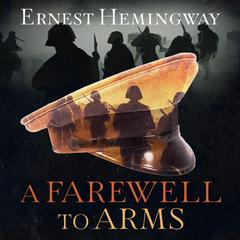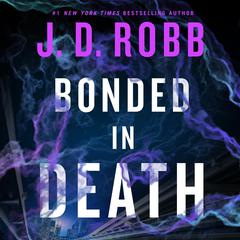 Play Audiobook Sample
Play Audiobook Sample
Green Hills of Africa Audiobook
 Play Audiobook Sample
Play Audiobook Sample
Quick Stats About this Audiobook
Total Audiobook Chapters:
Longest Chapter Length:
Shortest Chapter Length:
Average Chapter Length:
Audiobooks by this Author:
Publisher Description
The most intimate and elaborately enhanced addition to the Hemingway Library series: Hemingway’s memoir of his safari across the Serengeti—presented with archival material from the Hemingway Collection at the John F. Kennedy Library and with the never-before-published safari journal of Hemingway’s second wife, Pauline Pfeiffer.
When it was first published in 1935, The New York Times called Green Hills of Africa, “The best-written story of big-game hunting anywhere,” Hemingway’s evocative account of his safari through East Africa with his wife, Pauline Pfeiffer, captures his fascination with big-game hunting. In examining the grace of the chase and the ferocity of the kill, Hemingway looks inward, seeking to explain the lure of the hunt and the primal undercurrent that comes alive on the plains of Africa. Green Hills of Africa is also an impassioned portrait of the glory of the African landscape and the beauty of a wilderness that was, even then, being threatened by the incursions of man.
This new Hemingway Library Edition offers a fresh perspective on Hemingway’s classic travelogue, with a personal foreword by Patrick Hemingway, the author’s sole surviving son, who spent many years as a professional hunter in East Africa; a new introduction by Seán Hemingway, grandson of the author; and, published for the first time in its entirety, the African journal of Hemingway’s wife, Pauline, which offers an intimate glimpse into thoughts and experiences that shaped her husband’s craft.
Download and start listening now!
"While not a fan of hunting, I loved the wonderful descriptions of east Africa. The real reason to read this book, however, is to admire Hemingway's spare style and in particular his comments on the writing art, which he intersperses with descriptions of hunting, camping, and drinking. "
— James (4 out of 5 stars)
Quotes
-
“Ernest Hemingway went to Africa to shoot the bounding kudu and the ungainly rhinoceros and to reply to his critics. The result of this trip is Green Hills of Africa.”
— New York Times -
“Landscapes, people, animals, fear of failure—everything is real in an autobiographical text that exceeds the expectations of fiction. From the world civilization that left behind, to the aridity of the savannah, Green Hills of Africa is a book entirely true.”
— Times Literary Supplement (London) -
“Contains some of the best writing Ernest Hemingway has done—and is a delightful human document, natural, humorous, graphic in the swift characterizations and the original sidelights on his companions.”
— Kirkus Reviews
Green Hills of Africa Listener Reviews
-
" I relate to Hemingway's vivid descriptions. I particularly like the commentary on his fellow hunters. If you are a hunter you will love this book. "
— Robert, 2/18/2014 -
" I was there. It was true once, as he wrote. But no longer. "
— Patrick, 2/12/2014 -
" This is not your typical Hemingway. Very enjoyable but different from his other works. His ability to write clean engaging dialogue is second to none and his descriptive prose is something to envy. Good read. "
— Harvey, 2/12/2014 -
" probabil e o carte interesanta pt cine ii place vanatoarea. mi ar fi placut mai mult dak ar fi intrat mai in detaliu la descrierea peisajelor. interesante paginile in care spune k pe unde merge omu strica tot (pacat k sunt numa 2 pag) "
— Cristi, 1/13/2014 -
" Eh. EH killing a bunch of charismatic megafauna. Meditations on writing great. Meditation on how man ruins land toward the end is also great. That's about it folks. "
— Brendan, 1/1/2014 -
" Started out strong with an interesting story of hunting in Africa. However, about 150 pages in and you find that it is a long, long repetitive, narrative of his time in Africa. "
— Amber, 12/28/2013 -
" Drink at end of day to change ideas/mind, hyena reacts, writers forged in injustices and war, shot and now loves the hunt with clean kill, writer desires to watch revolutions--beautiful then they go bad, need to see yourself largely misrepresented, book-Denatured Africa Literary anecdotes. "
— Don, 12/3/2013 -
" Great hunting story. Gave us insight to the culture of the safari. "
— Tom, 11/30/2013 -
" Autobiographical Hemingway. Perhaps disturbingly similar to fictional Hemingway. But if you want a glimpse into masculinity as seen on African safari, here you are. "
— Sally, 11/17/2013 -
" I enjoyed reading this book, but kinda got sick of all the hunting and macho-ness of it. Took some extra energy to finish it. "
— Amy, 9/25/2013 -
" Not one of my favorite Hemingway books but still really good. I love how he can capture such vivid descriptions with just dialogue. This is just one of thes ever.ons he's one of the best American writers ever. "
— Matthew, 8/15/2013
About Ernest Hemingway
Edoardo Ballerini, an American actor, director, film producer, and multiaward–winning narrator. He has won several Audie Awards for best narration, including for 2019’s Best Male Narrator of the Year. He was named by Booklist as winner of their 2023 Voice of Choice Award, and was named a Golden Voice by AudioFile magazine in 2019. He has narrated over two hundred audiobooks, from classics to modern masters, from bestsellers to the inspirational, from Nobel and Pulitzer Prize winners to spine-tingling series, and much more. In television and film, he is best known for his roles in A Murder at the End of the World, The Sopranos, 24, I Shot Andy Warhol, Dinner Rush, and Romeo Must Die. He is also trained in theater and continues to do much work on stage.








































